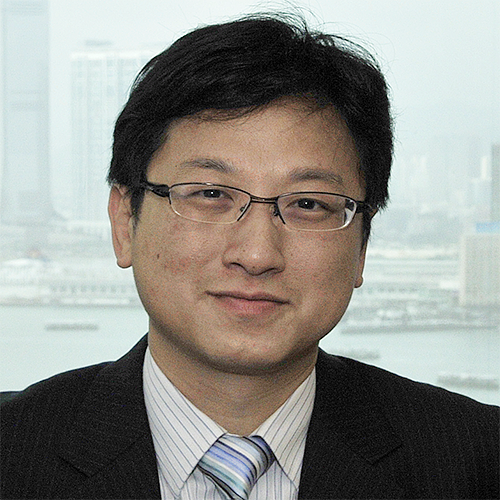Central banks continued to buy gold at a blistering pace last year, with purchases reaching 1,037 tonnes, the second highest on record and short by just 45 tonnes from the record set in 2022, the World Gold Council (WGC) says in its latest report on gold demand trends.
The People’s Bank of China (PBoC) reclaimed the crown for the largest single gold buyer as it reported an increase of 225 tonnes in its gold reserves over the year. The move made 2023 the country’s highest single year of reported additions since at least 1977. Its gold reserves now stand at 2,235 tonnes.
Other Asian central bank acquisitions were relatively modest by comparison, but no less important. The Monetary Authority of Singapore was the sole developed market buyer, adding 77 tonnes to its gold reserves, which now total 230 tonnes, while the Reserve Bank of India added a tonne or more to its reserves. There were no changes in Bank of Japan’s gold holdings in 2023.
One reason for central banks’ stepped-up gold purchases is diversification, Singapore-based Shaokai Fan, global head of central banks at the WGC, tells The Asset. He notes that some central banks were keen to diversify away from the US dollar and dollar-denominated assets.
Geopolitical tensions are another factor. Amid worries over the potential spread of hostilities in the Middle East and Ukraine, central banks see gold’s safe-haven asset status as offering some rigidity during times of conflict and economic uncertainty, Fan says.
And with gold being a physical asset, it can be stored and moved elsewhere, providing another option for central banks to enhance the resilience of their portfolios, he says.
Fan also points out that central banks may also be keen on adding more gold as they could be concerned about the political sensitivity and risk associated with their other reserve assets. This refers especially to the United States, where the proposed Rebuilding Economic Prosperity and Opportunity (REPO) for Ukrainians Act could empower the US president to confiscate frozen Russian sovereign assets, including central bank deposits, and turn over the money to the secretary of state to be spent on behalf of Ukraine.
Not all Asian central banks have been gold purchasers. The central Asian states of Kazakhstan and Uzbekistan were two big gold sellers in 2023. They sold gold because both countries have strong domestic gold production industries and their central banks buy gold from domestically mined sources. With the gold price hitting new highs, they chose to sell and replenish their reserves.
US election impact
With the first few months of 2024 resembling much of last year, Fan says only significant global events or a spike in gold price could disrupt the continuing gold buying spree by central banks in 2024. Although there are a number of elections taking place this year, Fan does not see any of them having a major impact on the gold price.
The gold price did not rise after the election in Taiwan, despite the geopolitical sensitivity of the democratic poll.
India, an ardent consumer of gold, is also scheduled to hold general elections in April or May this year, but with the outcome likely to be a victory for Prime Minister Narendra Modi and his BJP party, the event is not likely to have a substantial impact on global gold prices.
In the case of the US election, given the deeply entrenched positions of the Joe Biden and Donald Trump camps, demand for gold coins in both the run-up and aftermath of the election may get a boost, according to WGC.
Based on consistent historical records, a Democrat win has typically led to stronger gold coin buying post-election. However, for the coming election with the deep political divisions and growing mistrust of its leaders by the US electorate, the demand for gold coins and bars from US-based buyers is likely to see a spike post-election, regardless of the outcome, the council says.
Recycling precious metals
Danish jewellery manufacturer and retailer Pandora recently announced it has changed its supply strategy for precious metals and is now sourcing only recycled gold and silver for all its jewellery.
The shift avoids significant greenhouse gas emissions, as mining requires more energy and resources than recycling, it maintains. The carbon footprint of recycled silver is only a third compared to mined silver, while the recycling of gold emits less than 1% of the carbon emissions from mining new gold, the company says.
However, 2023 saw an increase in newly mined gold supply. Although it did not set a new record, the supply of newly mined gold last year was relatively high, says Fan, citing factors such as the rising gold price and operational issues in mines (stoppages due to strikes or technical reasons) being resolved.
He notes that recycling is now a significant part of the gold supply chain, typically making up about a quarter of the supply and is considered an essential aspect of the gold industry.
In addition, to address sustainability issues and reinforce trust in gold and the gold mining industry, the WGC in 2019 introduced the expectations for consumers, investors and the downstream gold supply chain. It clarifies what constitutes responsible gold mining and addresses key environmental, social and governance issues for the gold mining sector.
Unlike some other resources, there is no immediate threat to gold supply. Despite geopolitical tensions affecting global shipping routes, there are no significant bottlenecks that affect the movement of gold. So, central banks are expected to continue with their gold buying spree.








